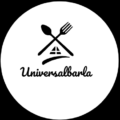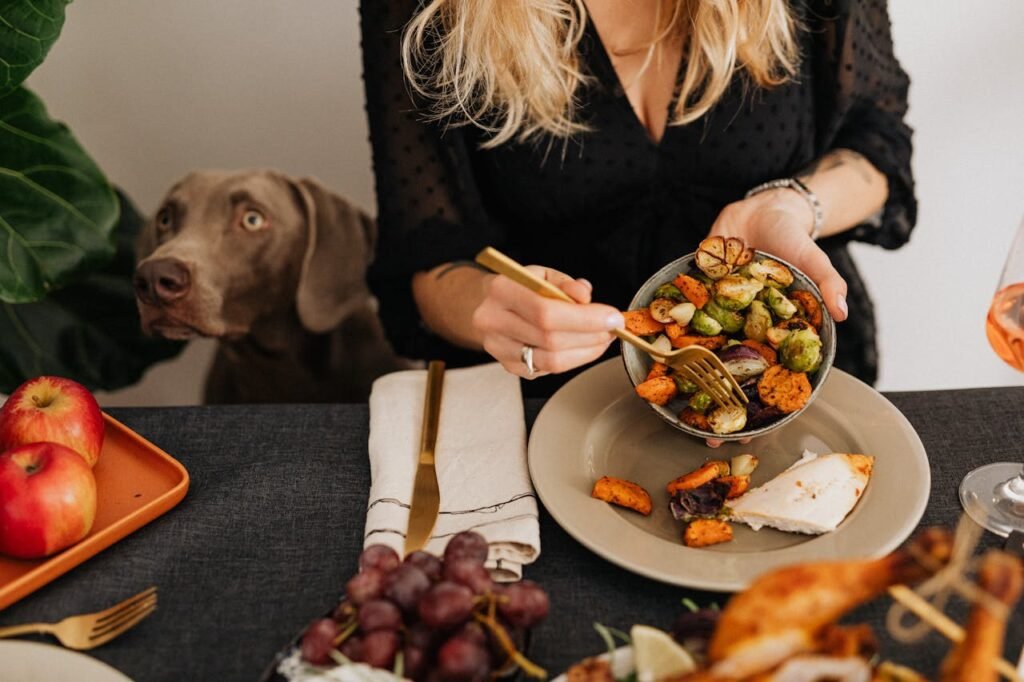As a dog owner, you likely enjoy sharing delicious meals with your furry companion, especially during family gatherings or holiday celebrations. One common question that arises when it comes to feeding dogs is whether they can safely eat bones — particularly pork roast bones. While dogs love to chew on bones, it’s crucial to understand the risks and safety guidelines associated with giving them certain types of bones. This blog will explore whether pork roast bones are safe for dogs and provide essential advice on protecting your pet while sharing your meals.
The Appeal of Bones for Dogs
Dogs have a natural instinct to chew, and bones have long been a favorite to gnaw on. Not only does chewing help keep their teeth clean, but it also satisfies their natural urge to tear and chew, which is beneficial for their mental and emotional well-being. In the wild, dogs typically chew on animal bones as part of their diet.
However, not all bones are created equal in terms of dog safety. While some bones can be a safe and enjoyable treat, others pose serious health risks, especially when cooked. Dog owners must understand which bones are safe and which should be avoided.
Risks of Giving Dogs Pork Roast Bones
Like other cooked bones, pork roast bones have significant risks for your dog’s health. Cooking bones makes them more brittle, which increases the likelihood that they will splinter into sharp pieces when chewed. These sharp pieces can cause serious injuries to your dog’s mouth, throat, digestive tract, and internal organs. Below are some key risks associated with giving your dog pork roast bones:
Choking Hazard
One of the primary dangers of pork roast bones is the choking hazard. Cooked bones can break into tiny, sharp shards your dog might accidentally swallow. These shards can get stuck in your dog’s throat, blocking their airway and causing choking. In severe cases, this can be life-threatening.
Digestive Tract Injuries
Even if the bone doesn’t cause choking, sharp bone fragments can easily cause injuries to the digestive tract. If your dog swallows a splintered piece of bone, it can puncture the lining of the esophagus, stomach, or intestines. This can lead to infection, peritonitis, or even more severe internal damage that requires surgery.
Blockages
Swallowing large or unchewed pieces of bone can cause a blockage in your dog’s gastrointestinal system. A blockage can prevent food from passing through the digestive tract, leading to pain, vomiting, loss of appetite, and potentially dangerous complications that may require emergency veterinary care.
Broken Teeth
Another concern with pork roast bones is the risk of your dog breaking their teeth while chewing. The hardness of the bone can crack or break a dog’s teeth, leading to painful dental injuries that might require veterinary attention and expensive dental procedures.
Why Cooked Bones Are Dangerous for Dogs
While raw bones can offer some benefits when appropriately fed, cooked bones should always be avoided. Cooking makes bones more brittle, which causes them to splinter more easily. This is true for pork roast bones and other cooked bones, such as chicken or beef. When bones become brittle from cooking, they can break into sharp, jagged pieces that are dangerous for dogs.
On the other hand, raw bones are less likely to splinter, and many dog owners offer them as chew toys for their pets. These bones are generally safer because they are more flexible and can be chewed and digested without the same risks that cooked bones present. However, even with raw bones, it is essential to supervise your dog and choose appropriate bone sizes to ensure they don’t swallow large pieces.
What to Do if Your Dog Eats a Pork Roast Bone
If your dog accidentally ingests a pork roast or cooked bone, acting quickly is essential. Here’s what you can do:
Stay Calm
First, try to remain calm. Dogs are curious creatures and sometimes get into things they shouldn’t. Panicking won’t help the situation and may cause unnecessary stress for you and your pet.
Monitor for Symptoms
Keep a close eye on your dog for signs of distress or discomfort. Common symptoms to watch for include:
- Choking or coughing
- Drooling excessively
- Vomiting
- Loss of appetite
- Diarrhea or constipation
- Abdominal pain or bloating
If any of these symptoms appear, seeking immediate veterinary care is critical. A vet visit might be necessary to determine whether your dog requires treatment for internal injuries or blockages.
Contact Your Veterinarian
If you suspect your dog has ingested a bone and is showing signs of distress, immediately call your veterinarian or an emergency animal clinic. Even if your dog appears okay, getting professional advice to ensure no hidden risks or potential complications is always safer.
Safer Alternatives to Pork Roast Bones
If your dog loves to chew on bones, providing them with safe alternatives that won’t pose a risk to their health is essential. Here are some options to consider:
Raw Bones
If you prefer to give your dog a bone to chew on, opt for raw bones instead of cooked bones. Raw bones are generally safer and provide similar chewing satisfaction for your dog without the same risks as cooked bones. Be sure to choose a size appropriate for your dog’s breed and size to prevent choking hazards.
Dog-Safe Chew Toys
Various chew toys are available on the market designed specifically for dogs. Many of these toys mimic the feel of bones while being much safer for your pet. Look for durable chew toys made from non-toxic materials resistant to breaking or splintering.
Bully Sticks or Antlers
Consider bully sticks, antlers, or other dental chews for a safe and satisfying chew. These are typically safer alternatives that provide the same chewing satisfaction without the risk of splinters or broken teeth.
Veggie Sticks or Bones
For a natural alternative, consider veggie sticks or special dog bones made from sweet potatoes, carrots, or other vegetables. These can provide a satisfying crunch and are much easier on your dog’s teeth and digestive system.
Conclusion: No, Dogs Should Not Eat Pork Roast Bones
In conclusion, pork roast bones are unsafe for dogs and should never be given to your pet. The dangers of choking, internal injuries, blockages, and broken teeth make cooked pork roast bones a risky treat for your dog. Instead, focus on providing safe alternatives like raw bones, chew toys, and dog-friendly treats designed to be enjoyable and safe for your pet.

